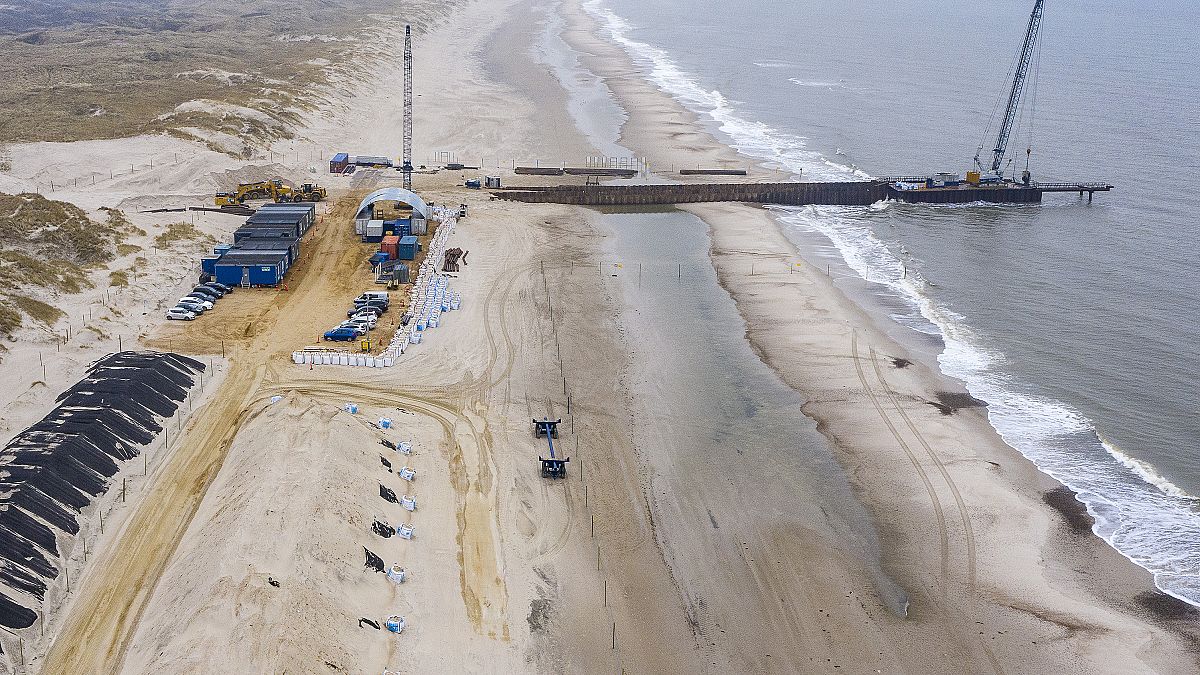Construction was suspended last May due to an issue with an environmental permit, but barely a week after Russia's invasion of Ukraine, work was allowed to resume.
Work has resumed on a pipeline in Denmark that will connect Poland to Norway's gas fields and help Warsaw reduce its dependence on Russian imports.
Construction was suspended last May due to an issue with its environmental permit.
But barely a week after Russia's invasion of Ukraine, the Danish environmental authority -- which was particularly concerned about the project's impact on local species of mice and bats -- granted a permit to continue works.
"We expected it to be approved soon, but of course, the war has made the issue more urgent," said Trine Villumsen Berling, a researcher at the Danish Institute for International Studies.
Begun in 2018, the 900-kilometre pipeline should now enter service in October, before being fully operational on 1 January 2023.
"It's also about having the gas in the Danish system, but above all to help the gas system of our good neighbours and Polish friends," Søren Juul Larsen, project manager at the Danish operator Energinet, told AFP news agency.
"We really have good cooperation with all the contractors to speed up, do everything we can to keep to the schedule."
With an annual transport capacity of 10 billion m3 of gas, the gas pipeline should make it possible to guarantee half of the consumption of Poland, which announced three years ago the end in 2022 of its vast contract with the Russian giant Gazprom.
But this good news for Warsaw could complicate supplies for the rest of Europe.
Norway, Europe's second-largest gas supplier after Russia, is producing at full capacity and the gas arriving in Poland will therefore no longer be sold in Western Europe.
"This project should help Poland, but could lead to a decrease in Norwegian gas exports to the United Kingdom and Germany," said Zongqiang Luo, an expert with analyst firm Rystad.
In addition, many long-term contracts between Russia and European suppliers still run for 10 to 15 years, he notes.
But according to the EU executive, the EU could do without Russian gas completely "well before 2030".
With Norway at full speed, deposits in the Netherlands and the United Kingdom in decline and Russia undesirable, Europe is therefore seeking its gas from further afield, with liquefied natural gas (LNG) transportable by ship, coming from the United States, Qatar or Africa.
But its importation requires the construction of heavy terminals or at least the purchase of floating storage and regasification units for imported LNG.
Faced with the abandonment of the Nord Stream 2 gas pipeline from Russia -- whose construction had resumed last winter in Danish waters -- Germany has thus urgently relaunched three projects for the installation of LNG terminals, hitherto considered a non-priority.
One could be ready for winter 2023/24, the other two not before 2026.
Finland, associated with Estonia, announced on Thursday a project to lease an import terminal vessel, while the three Baltic countries announced that they had stopped importing Russian gas since 1 April.
